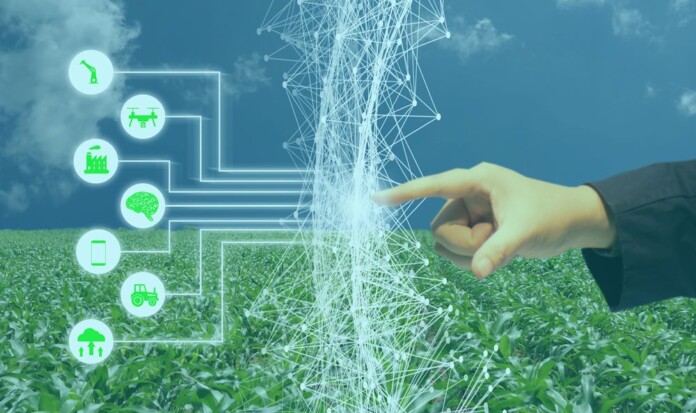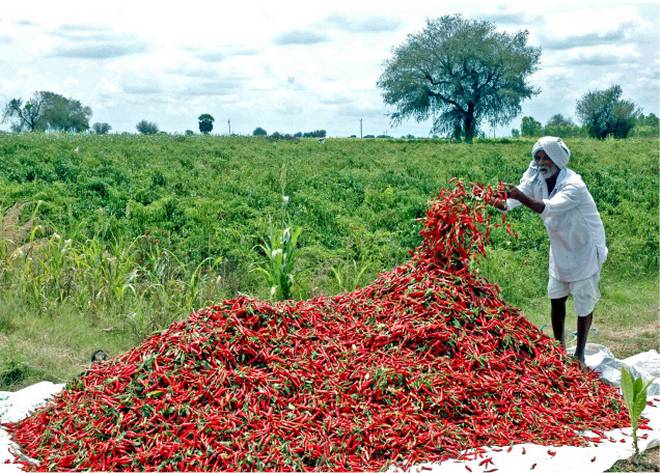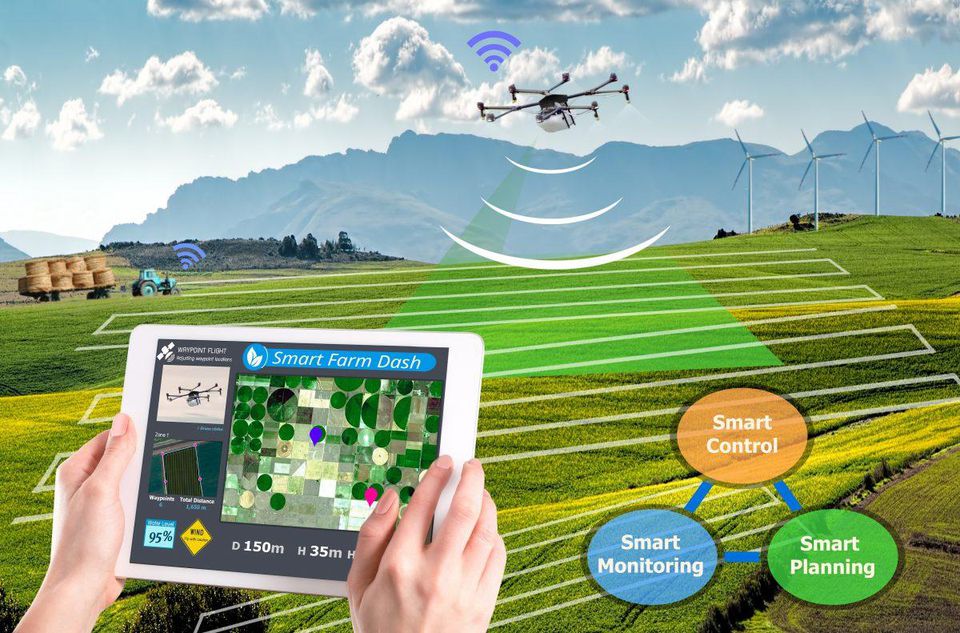India today has 1000 plus agri-tech start-ups. They promise to transform Indian agriculture into a more efficient and productive enterprise for farmers. UNDP Accelerator Lab is playing a catalyst role.
The agri-tech industry can play a vital role in leading the transformation of India’s food systems by improving efficiency, quality and profitability of small farms. Leveraging emerging digital technologies like Artificial intelligence, Blockchain, Internet of things (IoT), drones, and others, the agri-tech industry has been employing innovative solutions to address pertinent sectoral challenges, a trend which accelerated during the COVID-19 pandemic due to severe disruptions in industries and supply chains.
With over 1000 agri-tech start-ups exploring transformative solutions in agriculture, India has a booming agri-tech ecosystem, space is expected to grow to a $30-35 billion market by 2025, which is very promising for the entire sector.
Agri-tech has huge transformational potential with capabilities for automating agricultural functions, improving traceability of agriculture supply chain, fighting risks and uncertainties through predictive power, directly connecting farmers with consumers, agribusinesses, credit institutions and with government policies and many more.
But India still experiences low penetration of agri-tech solutions due to scepticism towards digitalization various challenges in technology adoption, establishing sustainable revenue models, and ensuring access to data, and so on. However, there has been significant work initiated by many enterprises in integrating Indian food systems with impact-driven and evidence-driven large scale agri-tech innovations.
Translating Ideas into Action
UNDP Accelerator Lab India is leading a network of partners for reimagining Indian food systems and addressing various challenges through its many agri-tech initiatives. For instance, the Lab, supported by Cabinet Office of Japan, has partnered with the Spices Board of India to strengthen the livelihoods of spice farmers and small-scale spice processors by building a blockchain-powered traceability and trading platform for Indian spices. This blockchain-powered platform is expected to enhance transparency and quality assurance in spices value chain while connecting small and marginal spice farmers to direct buyers through smart contracts.
A pilot was launched involving over 1000 chili and turmeric farmers in Andhra Pradesh which successfully demonstrated the potential of blockchain in terms of enhancing overall transparency through data immutability and retrievability. Efforts are underway for assessing real-world traceability of spices. Depending on the results, UNDP Accelerator Lab is planning to scale up this blockchain platform jointly with Spices Board India to cover major spice varieties and spice growing regions in India.
Data for Policy
To mainstream climate resilience and farmer-led solutions into agriculture policies, the Lab has initiated “Data for Policy” in partnership with the Telangana Government, the Rockefeller Foundation, and several other stakeholders to strengthen climate resilience in agriculture programs and policies. The initiative leverages open-source technologies and digital public good platform, to engage citizen scientists to generate data insights on climate resilience. Evidence-based, data analytics led insights also accounts for indigenous knowledge, which guide policy making and agriculture programmes, making food systems more resilient.
Irrigation has been a perineal problem for Indian agriculture. To ensure sustainable irrigation practise, IoT technology is being leveraged to design smart irrigation system for black gram crop in Villupuram district of Tamil Nadu. With the objective to assess various factors including soil richness, local weather, water requirement of crops, etc., and share the information back to the farmers, the IoT-driven platform is generating actionable insights to achieve optimal water utilization and ensure best irrigation practices, while empowering farmers to make informed decisions.
Science for Society
In food processing, the lab has partnered with start-up S4S (Science for Society) to test an innovative women-led business model using solar drying of agriculture commodities. This initiative is providing integrated market-based food solutions across the value chain to preserve agro-produce and build a cost-efficient supply chain. It involves decentralised processing of commodities, addressing food wastage and perishability issues, and ensuring product quality. Women micro-entrepreneurs are earning an additional income of Rs. 35,000 to Rs. 100,000 per year. Over 6,000 women micro-entrepreneurs from Maharashtra, UP and Odisha are being supported through this business model.
Crop residue burning leading to carbon emissions and air pollution is a serious concern across India, particularly in northern parts of the country. The Lab has partnered with start-up A2P in Punjab to implement innovative business model that converts crop residue into biofuel as a partially replacement fuel for coal-dependent industries, while providing additional income to farmers to process their crop residue.
India is showing significant penchant for agri-tech systems. With increasing awareness and education, more players are joining the initiatives. The agri-tech sector is also opening avenues for larger collaborations of greater value, which together are addressing key challenges at every stage of the value chain.
This is helping India reimagine its food system and make it an effective means to boost socioeconomic development in an environment friendly manner. As the complete value chain engages the majority of Indian population, most of which is under served, the agri-tech driven food system will act as an instrument of change, upliftment and social development.
a
Support Green Journalism
Dear Readers,
Since March 2013, SustainabilityNext (SN) has been educating and exciting thousands of entrepreneurs, executives and graduate students about the power of Sustainability in influencing our future. It’s purpose is to inspire and provoke Indians to move swiftly from awareness to belief to ACTION.
As of December 2021, SN is India’s most read digital magazine on the business of sustainability. It has been covering Green Business, Green Products, Social Entrepreneurship, Green Literature, Green Technology, among others. A youth section was added in 2021.
SN launched India’s first Green Literature Festival (www.greenlitfest.com) in June 2021 to offer a robust platform for readers and writers to hold meaningful conversations.
For SN to grow and stay relevant it needs to transition from a grant and self-funded model to a community-funded and/or institution/corporate-funded model.
Looking forward to your timely and generous support.
Why Support SN – https://sustainabilitynext.in/support/
Subscriber
Supporter
Benefactor
Sponsor
All supporters get two-year subscription to SN. You can Gift Subscription to your colleagues/friends/family.
For sponsorships and advertising please contact
Benedict Paramanand
Publisher & Editor
benedict99@gmail.com
a













